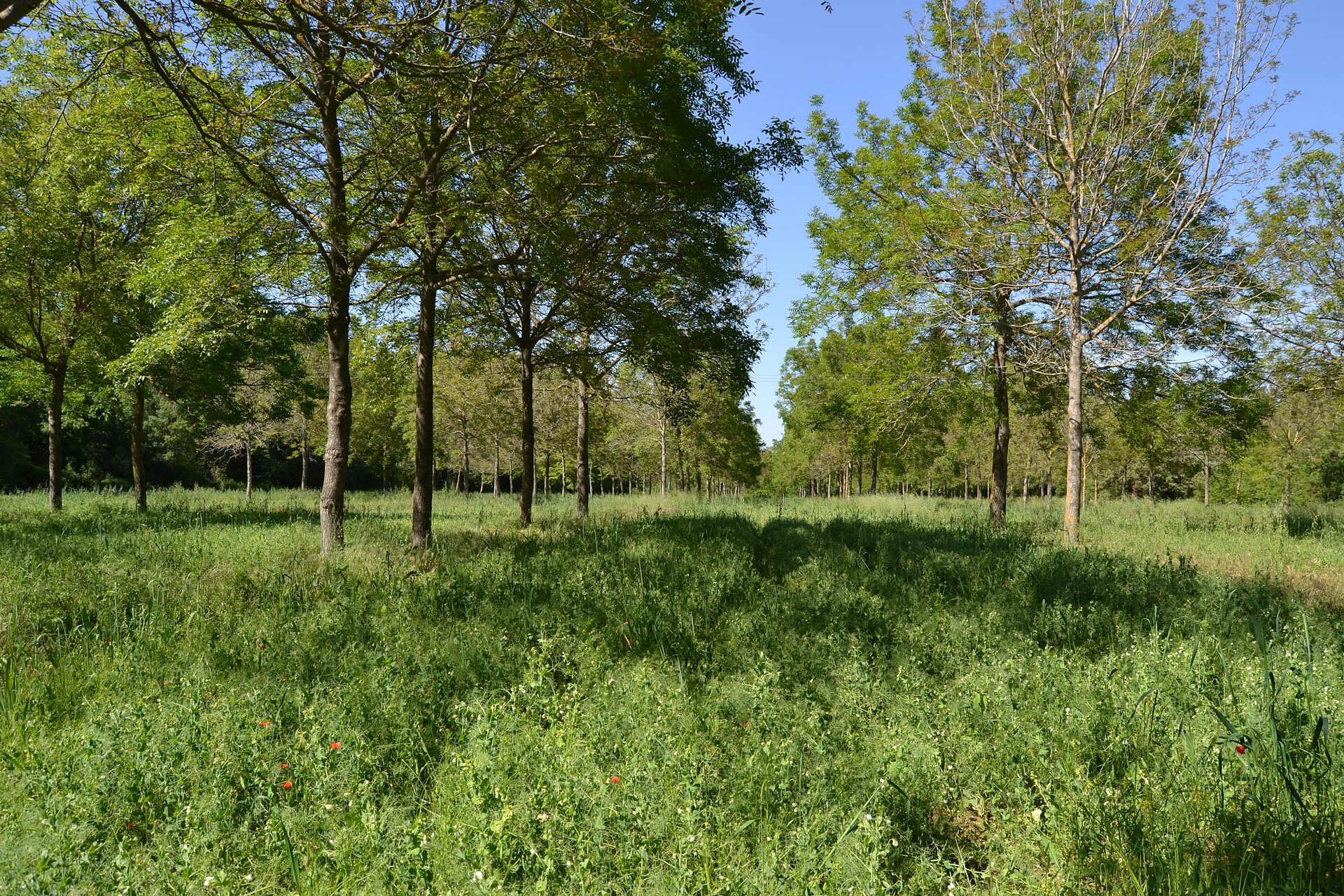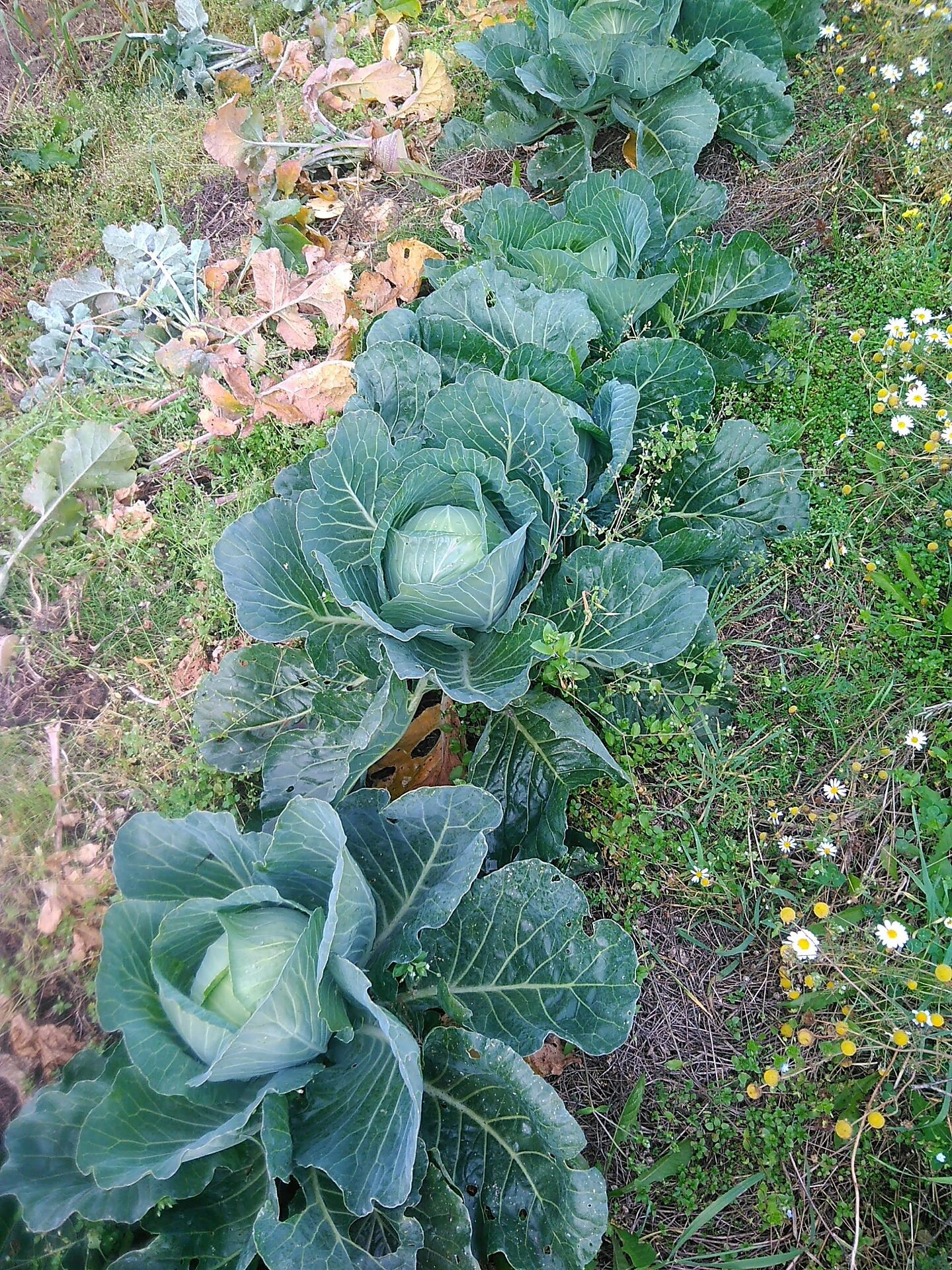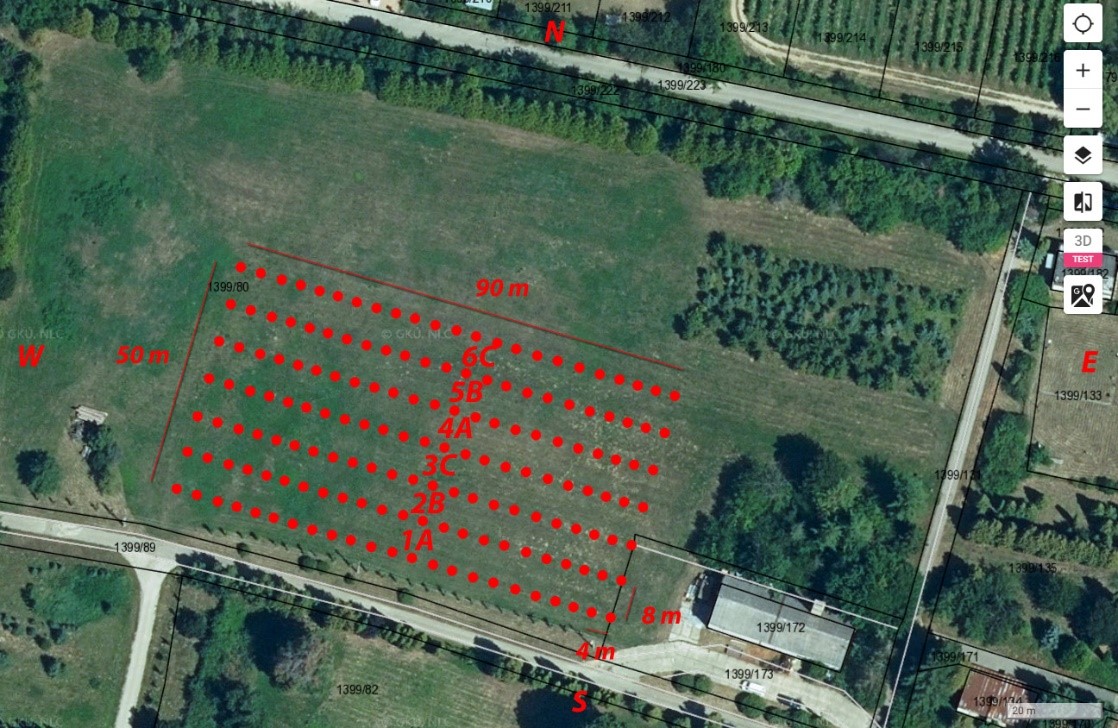Living Lab Regenerative Agriculture and Agroforestry in the Slovak Republic
Keywords: land use, protection of biodiversity, resource conservation
Subject and objectives of the project
Regenerative agriculture is based on the following principles:
- minimal soil intervention, direct sowing or minimal tillage,
- targeted grazing management,
- Formation of soil organic matter,
- diverse main crops, improved crop rotation,
- Integration of catch crops and cover crops, minimization of the time in which the soil is not covered by plants,
- Promotion of biodiversity.
It can be seen as part of organic farming and represents an important approach in land use to counter both the climate and biodiversity crises. The implementation of so-called agroforestry concepts also plays an important role in this context. This involves the establishment of woody plants in arable crops, which can improve various ecosystem services such as water retention, humus formation, soil fertility and microclimate. Against this background, the aim of the project is to establish regenerative agriculture in the Slovak Republic, which – as is also known from the Bördeland landscapes of eastern Germany in particular – has so far been characterized by intensive land use on huge arable fields.
For the conditions in the Slovak Republic, agroforestry and regenerative agriculture thus represent innovations with high potential for more ecological and sustainable land management. In order to bring about a change in land use in the Slovak Republic, it is first necessary to familiarize farmers with these new concepts and show that these extensive approaches can also be used successfully in agriculture. The aim of the project is therefore to set up a so-called Living Lab, which can be used to test and demonstrate different approaches. The project is aimed at different target groups such as
- Farmers,
- small producers,
- Landowners,
- interested citizens and consumers,
- Professionals, researchers and students.
In addition, the Living Lab is to be used as an important instrument for promoting nature-friendly agriculture with clearly positive effects on the environment.
Ultimately, a real and a virtual platform for regenerative agriculture and agroforestry will be established, which will also serve to network stakeholders. Information is made available in digital form on a dedicated website, but also in printed form as educational material in the form of publications. In cooperation with the Agricultural University SPU Nitra, the Living Lab is directly integrated into the training process of future agricultural engineers. Excursions for the students to the Living Lab will be part of the lessons.
The following steps are planned:
- Collection, processing and further dissemination of available technical and scientific information on agroforestry and regenerative agriculture,
- Production of the publication on regenerative agriculture in printed and digital form,
- Organization of 8 excursions for farmers and students to present processes in the Living Lab and a study trip to Germany,
- Production of 10 information and educational videos on the importance of agroforestry and regenerative agriculture,
- Development of a database for regenerative agriculture and agroforestry for the transfer of innovations and new findings
- Identification of farms with good practices in agroforestry and regenerative agriculture and inclusion in the database, publication and continuous updating of the database and sharing of information and knowledge,
- Support specific measures for farmers who are willing to introduce regenerative agriculture and agroforestry methods and practices,
- Establishment of a living lab for demonstration and research in the field of regenerative agriculture and agroforestry in the Mlyňany Arboretum on an area of at least 5,000m2,
- Installation of research equipment for monitoring the influence of cultivation technologies on cultivated crops and the environment by the Slovak Academy of Sciences.
Innovation and exemplary nature of the project
The project has both an informational and a demonstration character. The information and findings are communicated in digital form – educational texts, photos and videos – on the web portal www.prepodu.sk, on the website and in the social media of the Ekopolis Foundation, as well as in printed form in a new publication. In cooperation with the Slovak University of Agriculture, the Living Lab is directly integrated into the training process of future agricultural engineers.
The project’s new approach also consists of setting up a database of demonstration farms in the field of regenerative agriculture and agroforestry in order to communicate and exchange innovations, new findings and examples of good practice that connect farmers, students and experts interested in this type of agriculture. The Living Lab will be one of the first demonstration centers of its kind in Slovakia, where the principles / procedures / practices of regenerative agriculture and agroforestry will be applied in one place. Thanks to the infrastructure of the Mlyňany Arboretum, which provides the target groups with the necessary information on this topic and thus enables further scientific research to be carried out here in the future, it will still be possible to use it for scientific and demonstration purposes in the long term following this project.
For the development of regenerative agriculture in Slovakia, it is important to create conditions that enable farmers to test this type of agriculture in practice and introduce it on their farms. To achieve this, the project offers an innovative approach in the form of the shared use of highly specialized equipment (direct seeding machine, crimping roller), which is not yet available to smaller farmers under the given conditions. This will also be a motivating element for farmers to participate in the introduction of regenerative agriculture in Slovakia.



Project implementation:
Associated partners:
- Slovak Academy of Sciences, Mlyňany Arboretum, Slovakia
- SPU Nitra – Slovak University of Agriculture in Nitra
Place of activity: Slovakia
Funding period: January 2024 to December 2025
Project costs: Total volume: 216,046 euros, funding from DBU: 107,336 euros
DBU-AZ: 39087
Status: 30.04.2024
Cover picture: Ekopolis Foundation